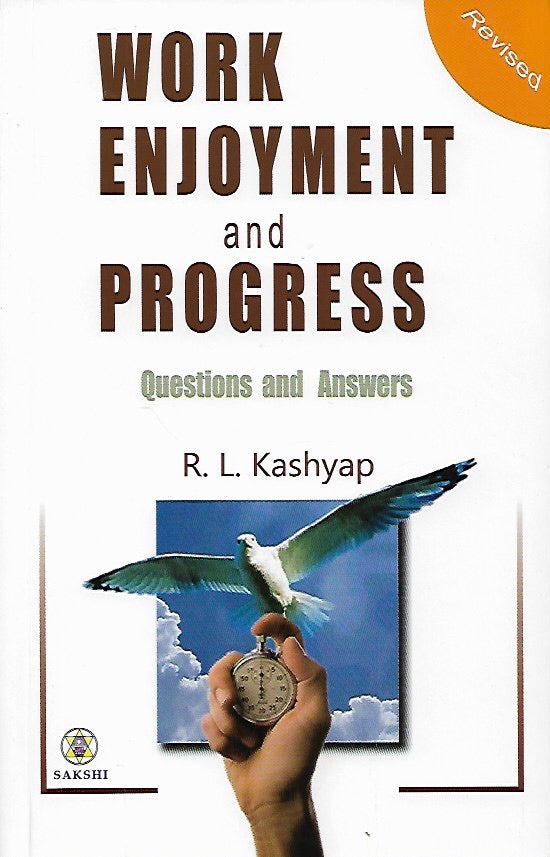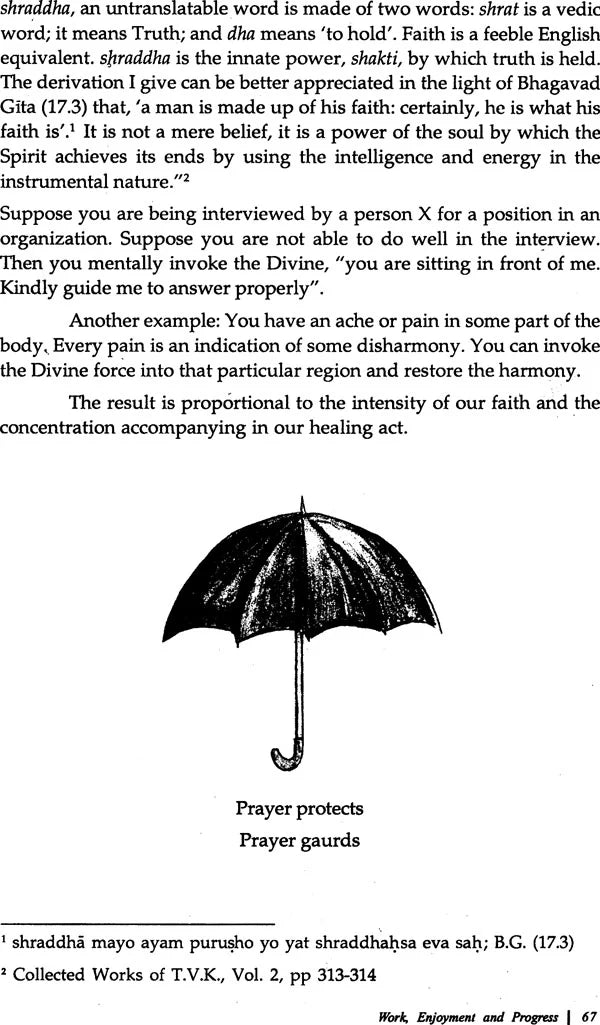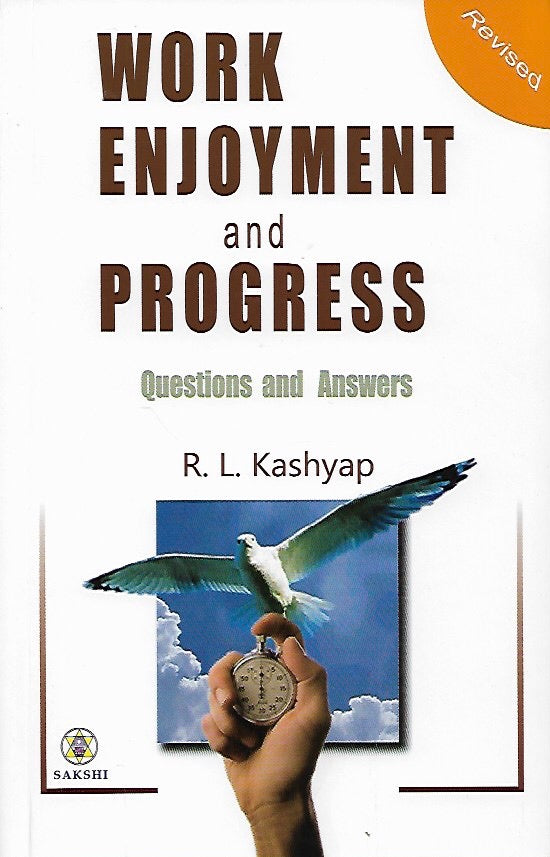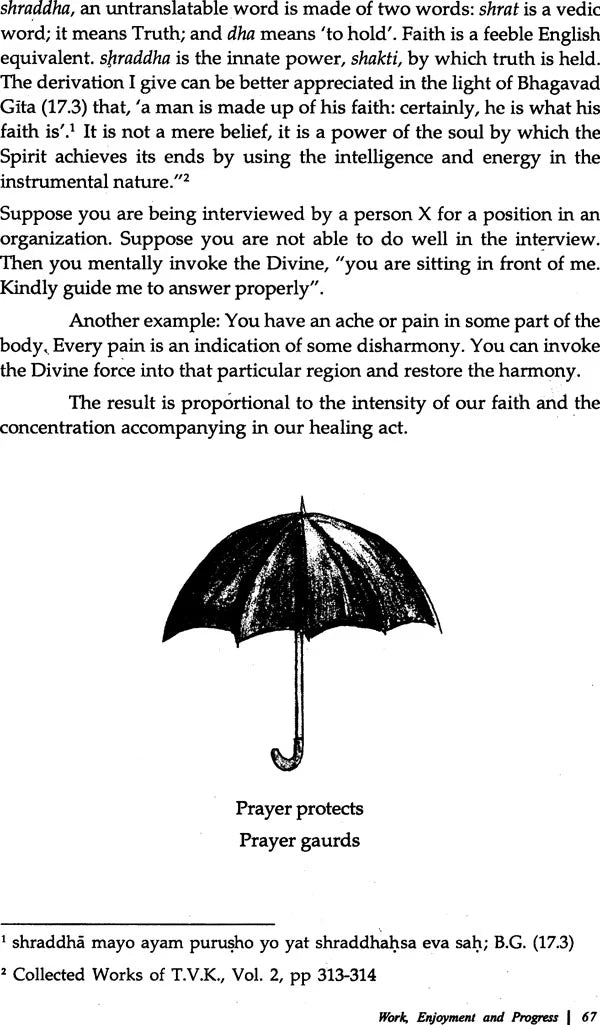Preface
This book belongs to the genre of self-help books focusing on the wisdom of the ancient scriptures of the Hindus such as Rig Veda Samhita, Isha Upanishad and Bhagavad Guta. It grew out of the talks given to postgraduate students at Purdue University, U.S.A., over a period of twenty five years (1976-2001) in the weekly 'Gita class', an extra curricular activity. Some students had no exposure to the Hindu Scriptures, some others had some exposure thanks mainly to their grandfather (not parents!). Some questions were posed by me to ascertain their background. To illustrate, I will give the following dialogue, (S) student (M) myself. (M): What is the aim of life? ; (S): I have heard it as 'moksha'. (M): What is Moksha? (S): Liberation from bondage or misery. (M): Do you believe that your life is full of misery? (S) Not really: but moksha may have other meanings. I do not know Sanskrit.
Many students had ambivalent feelings regarding the key ideas like work, enjoyment and spiritual life. One said that we recite in several hymns that out life (samsara) is full of misery even though it is not part of his experience. Another said, 'we are told by many preachers that enjoyment and spiritual life are incompatible; what is the source book for this statement?' Another said, 'Buddha is supposed to have said all work leads to misery; it is hard to believe?'.
Some students were aware of the daily Bible Study Group attended by several of their Christian American colleagues. What surprised the Hindu Students was the opinion on the Bible (New Testament) voiced by their colleagues. "It is the word of God. The words have been useful in our daily life. We are not bothered by the criticisms of the so-called rationalists; it is futile to comment on a book after a casual perusal". Some Hindu students were surprised to see many of the senior professors, including some Noble prize winners, being active in their church (Christian or Jewish) activities. Some students were openly critical of their parents for not exposing them to any to systematic study of the Hindu scriptures in contrast to the Bible study encouraged by Christian parents. Some were impressed by the efforts made by the Jewish parents in exposing the Jewish culture to their children. All this created some interest among some Hindu students in our scriptures.
This book is graced with many quotations from the Mother and Sri Aurobindo who emphasized the role of work not merely as a method of earning money but also as a means of attaining spiritual perfection. There is no need to regard money as, 'an evil' or even as, 'a necessary evil'.
Some of the rules of life enunciated by the great teachers of earlier times are ambivalent. One teacher states that, 'one should not pray to the Divine for any worldly goods". To whom should we petition for satisfying the needs? The idea of begging from house to house is exalted by some persons who themselves would never practice it. Another says, "you should place all responsibility in the hands of God", or "you have to pray, "O God, may your will be done". God does not need our nudging to do His will. The usual comment, 'it will happen as God has ordained', underlies a deep defeatist attitude.
God is not an arbitrary dictator; your sincere thoughts and aspiration can change the direction of the world. Merely Praising God with all superlatives will not make God satisfy your demand, you have to take the first step. Recall the Mahabharata war. Even though the Pandavas were righteous and were great devotees, Sri Krishna did not make them victorious by magic. They had to fight long and arduous battles. At times, when defeat was almost certain, Sri Krishna used his superhuman powers to save the Pandavas. Again in the war, all the five children of Pandavas and all their relatives and the kings on their side were killed.
This book is in form of answers to some specific questions posed by students and others in various contexts. The interesting and complex interplay between our calling the Divine for His (Her) help and His (Her) response is brought out in these questions and answers.
An important aspect of this book is the clarifications of the concepts such as desire, enjoyment, which rarely find a place even in the voluminous tomes of learned preachers. More than half of the questions deal with work including the precise statement of the purpose of life and works. The table of contents should give an idea of the type of questions posed.
Unlike the self-help books published in the USA, this book is brief and to the point. There is no excess verbiage. There is no obsession with becoming the Number One in your career. The emphasis is on developing yourself all through your life. Our goal should be to attain allround perfection not only at the individual level but also at the interpersonal level and at the level of society at large. The growth should not stop even during the years of senior citizen hood.




